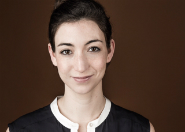 Caroline Green is a PhD student at King’s College London. (362 words)
Caroline Green is a PhD student at King’s College London. (362 words)
The Care Quality Commission (CQC), England’s care service regulator and quality inspector, is emphasising the centrality of human rights and equality when providing high quality care in care homes and other care services. Human rights are the rights we all have because we are human beings. They are legally enshrined in the Human Rights Act 1998 and the Equality Act 2010.
Andrea Sutcliffe, CQC’s Inspector-in-Chief, recently explained at CQC’s Human Rights and Equality Conference in February 2018 what role human rights play for CQC’s regulation and inspection of care homes. She said, ‘Human rights thread through all our key-lines of enquiry. It informs the judgement that we make when inspecting care services and is one way that the CQC can emphasise the importance of human rights, raise the profile and make sure that the people are being treated the way that they should.’
CQC’s key-lines of enquiries (KLOEs) guide inspectors during their inspection. They were updated in 2017 to put a heavier emphasis on human rights and equality. Andrea Sutcliffe said: ‘When we are looking at individual services and we are considering whether people are being treated with dignity and respect, whether the care is focused on them as individuals as opposed to one size fits all, how well led the service is, for all our questions, the fundamental basis to it are the human rights of the people who are using the service.’
For care service providers, this means that they must give more consideration to human rights and equality of people working, living in and also visiting their services. To help providers understand what human rights and equality mean in practice, the CQC likes to share good practice examples. It has done so for example in its publication ‘Equally outstanding’, which is freely available.
But, the CQC’s human rights approach to regulating and inspecting reaches beyond care service providers. It is also the task of researchers and civil society organisations to work together with providers, care users and their families to develop understandings of human rights and equality in practice in care services.
Caroline Green is a PhD student at King’s College London.